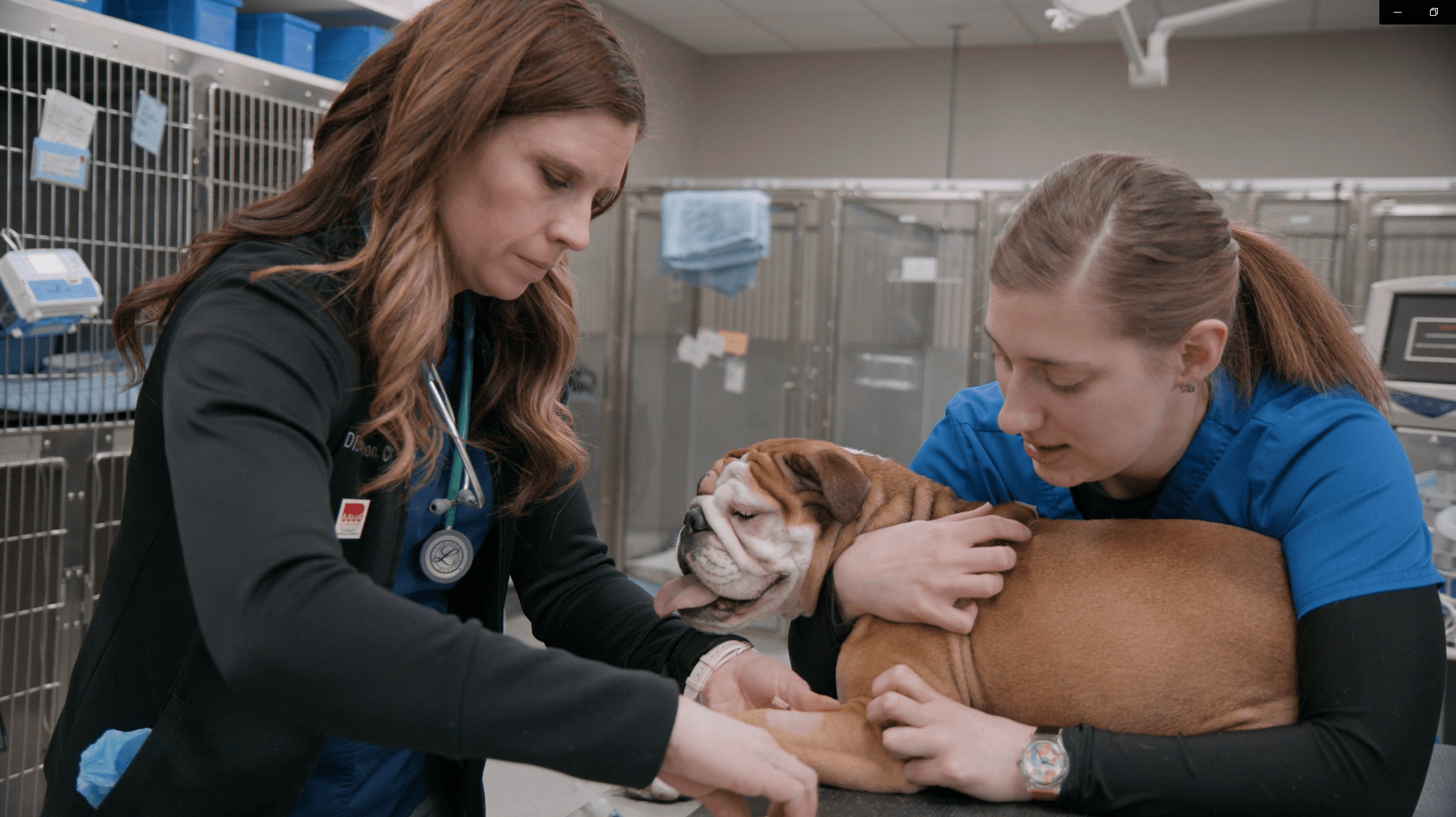About Our Internal Medicine Department
The Internal Medicine (IM) Department at Madison Veterinary Specialists is composed of Dr. Kristen McDaniel and Dr. Kaylyn McDaniel (board certified small animal internists), certified veterinary technicians and veterinary assistants. A board certified veterinary internal medicine specialist is a licensed veterinarian who has obtained intensive, additional training in understanding how your pet’s internal body systems function and in diagnosing and treating the many serious diseases that can affect the health of those systems. An internal medicine specialist has advanced training in the following disciplines:
- Cardiology
- Hematology
- Immunology
- Infectious Diseases
- Nephrology/Urology
- Neurology
- Respiratory Diseases
While your general practitioner veterinarian can diagnose and treat many health problems, certain diseases and conditions require the care of a doctor who has had specialized, intensive training in internal medicine in order to provide the very best outcome for your pet. Internists focus on diagnosing and treating diseases of the internal systems. Where the diagnosis is known, an Internist may confirm the diagnosis and treatment, providing peace of mind. If a diagnosis is proving elusive or therapy is not proving effective, the Internist can use advanced diagnostics to find the diagnosis or adjust treatment plans to get patients back to health.
*Within the discipline of veterinary internal medicine, there are also veterinarians who specialize further in Small Animal Medicine, Cardiology, Neurology, and Oncology
The Benefits of Utilizing a Small Animal Veterinary Internist
Just as your own primary care physician may feel the need to refer you to the care of a specialist from time to time, your general practitioner veterinarian may feel your pet needs a specialist to help diagnose or treat a particularly complicated medical problem. While your general practitioner veterinarian can handle many aspects of your pet’s care, just as in human medicine, there is sometimes a need for the attention of a specialist. You can be assured that a veterinarian who knows when to refer you and your pet for more specialized diagnostic work or treatment is one that is caring and committed to ensuring that your pet receives the highest standard of medical care for his or her problem.
While in some cases, your veterinarian may be able to simply consult with a specialist about your pet’s care, in other cases it is necessary to actually refer you and your pet to the specialist for more advanced diagnostics and treatment. Board certified veterinary internists may also have access to specialized diagnostic or treatment tools that a general practitioner veterinarian may not have.
FAQ’s
What health problems do veterinary internists treat?
Board certified internal medicine specialists are trained to treat the most serious diseases and health problems that affect pets. They are also especially prepared to care for pets that may be facing multiple health problems. Thanks to better health care, more and more pets are living longer lives. As a result, an increasing number of older pets, just like older people, are coping with multiple disease states that can be very difficult to manage. For example, a cat with diabetes may also be suffering from kidney failure, or a dog in heart failure may also be diagnosed with cancer. Internal medicine specialists are uniquely prepared to oversee the care of these complicated cases. In other situations, a younger animal may develop a problem that used to be considered untreatable but is now manageable and perhaps even curable. Some common diseases that frequently lead general practitioner veterinarians and concerned pet owners to seek the expertise of a specialist: Cancer, Heart Disease, Gastrointestinal Diseases, Diabetes Mellitus, Immune Related Disorders, Kidney Dysfunction
Will my family veterinarian still be involved in my pet’s care?
YES! Seeing a veterinary specialist never replaces the long-term relationship every pet and pet owner should have with their family veterinarian. In many cases, your veterinarian will play and active role in your pet’s veterinary care, especially if your pet is coping with multiple disease states or conditions. In some cases, your specialty veterinarian will take over the majority of your pet’s medical care. It all depends on your pet’s particular disease and health problem.


